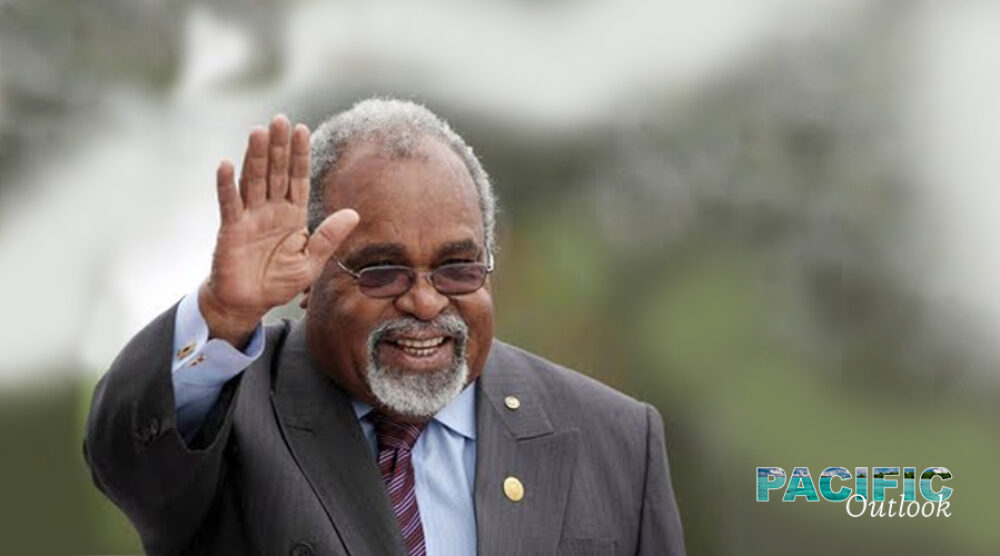In the heart of Brisbane, the PNG community came together to mark the passing of the Grand Chief, Sir Michael Thomas Somare. As a RAAF plane transported Sir Michael’s body from Port Moresby to Wewak, where he was welcomed home for the last time by nearly half a million people, St Stephen’s cathedral filled with hundreds who had come to bid their own farewell.
At a time of national sadness in their homeland, the PNG diaspora and their friends came together to mark the passing of the man credited as the architect of PNG’s independence. The cathedral was filled with colour and movement as the spirit and vibrancy of PNG was displayed in all its variety and splendour.
Throughout the church, the diversity of Papua New Guinea was on display with shirts, bilums, tattoos and jewellery from many of the regional and provinces of PNG, from ‘the mighty Sepik’ to Milne Bay.
Elements of Papua New Guinean culture were interspersed into the service, making it an event that was very much the product of, in the words of David Tekwie, ‘Papua New Guineans living in Australia’. A traditional Sepik calling home of the spirit and the blowing of a conch shell commenced proceedings and was followed by a procession that displayed customary tattooing, bilas and traditional dress. At their head was Aunty Maggie who proudly carried a portrait of the Grand Chief.
This gathering that celebrated unity in diversity is one that resonates with Sir Michael’s vision for the fledgling nation of Papua New Guinea 45 years ago. Whilst some doubted that the many tribes of the land could indeed by united as one nation, Sir Michael was not to be swayed in working towards that vision. In a speech after the service David Tekwie expressed his hope that the passing of Sir Michael would provide a unifying point in time for the people of PNG.
Australia and PNG share many ties dating back over many generations. It was a combination of diplomatic and political firepower that led to PNG becoming an independent country in 1975. Sir Michael Somare and Gough Whitlam were at the forefront of that process. Many told them that it was too soon and that PNG was not ready. Somare was not to be deterred. As Sean Dorney reminded the throng in his speech, Somare said that achieving independence was a matter of ‘dignity’ rather than economics.
And Queensland has a particular place in a relationship that is dynamic, layered and, at times, fraught. Queensland is home to the largest PNG diaspora community in Australia. It was no surprise to see the church fill almost to capacity.
Although many in Australia remain unaware of the fact, Papua New Guinea is Australia’s closest neighbour and it is Queensland that is home to that border. Evidence of complex trading relationships from hundreds of years ago is available on both sides of the Torres Strait. COVID-19 has put a stop to traditional movements across the Torres Strait border, for trade, community, and cultural exchange. It is disappointing but perhaps not surprising that this fact only seems to have struck home for some as the number of COVID-19 cases grows exponentially in PNG.
It was in Brisbane, in 2005, that Sir Michael Somare was at the centre of an event that has cast a long and painful shadow over the PNG-Australia relationship. Sir Michael, who was Prime Minister at the time, was asked to remove his shoes at Brisbane airport security and when a complaint was made to the Australian government, then Foreign Minister, Alexander Downer, said that there would be no apology. It marked a low point in relations between the two countries and is certainly not forgotten among Papua New Guineans for whom matters of protocol and respect are held very highly.
The Australian government has been at pains to demonstrate to the people of Papua New Guinea its understanding and appreciation of the significance of Sir Michael’s death. On Friday, flags on official buildings flew at half-mast. And on Sunday, the RAAF transported Sir Michael’s body to Wewak. It was only the second time the RAAF has provided that service to another country; the previous occasion was on the death of President Nelson Mandela of South Africa.
The communities that came together at the weekend in Brisbane play a crucial role in the relationship between the two countries; one which will continue to evolve.
Tess Newton Cain is an Adjunct Associate Professor at the Griffith Asia Institute and project lead of the Pacific Hub.








